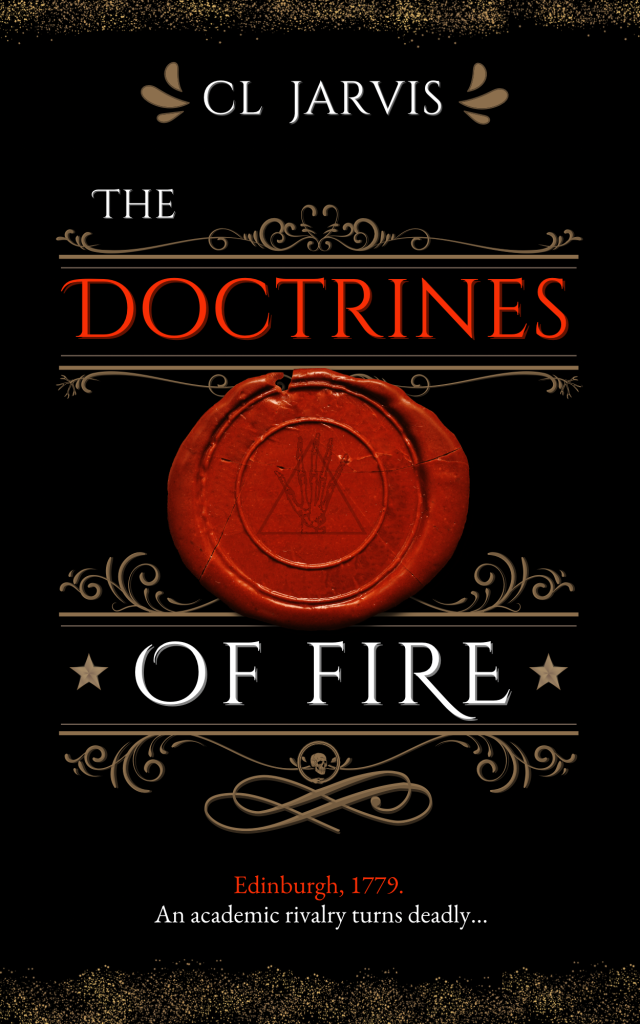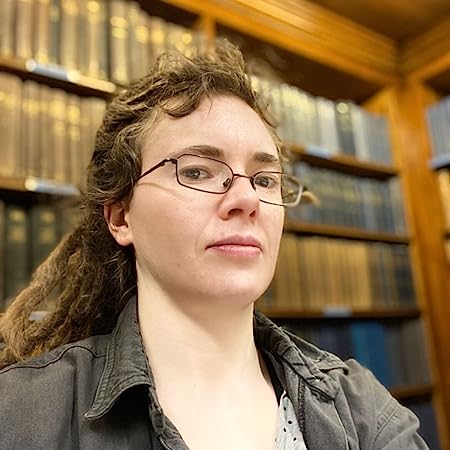How I Write Historical Fantasy - CL Jarvis
10 Jun 2023Why I enjoy writing and reading historical fantasy
The choice to write historical fantasy came naturally when I decided on the story I wanted to tell, and what kind of author I wanted to be perceived as. As a reader I enjoy well-researched fantasy books of any sub-genre; where the author is delving into a topic they’re fascinated about and that deep knowledge leaps off the page. The reader walks away having learned something new. I also enjoy the act of writing historical fantasy and treat incorporating historical elements into my fiction as a kind of puzzle: how can I create a story grounded in reality, and have the fantasy/magic feel like an organic outgrowth of that reality?
It helps that my own background time in academia I enjoy digging through unfamiliar topics, and I’m trained in research techniques (though my PhD is in science, not history).
Background research
My debut novel The Doctrines of Fire is set in late eighteenth-century Edinburgh. It’s a city I’m deeply familiar with, and was living in while I wrote the book. To research the period I relied on academic papers, PhD theses, and non-fiction books. Many I could access online for free, but I also used Libraries and research institutes (such as the Centre for Research Collections at the University of Edinburgh). These institutes usually allow anybody to visit for free – you don’t need to be affiliated with a university – provided you make an appointment. I was able to read Joseph Black’s original correspondence that way.
To get a better sense of place I visit museums and historical homes. The Georgian House in Edinburgh holds candlelight tours, which helped me imagine what 18th century dinner parties would feel like.

Sensory detail and sharp specifics
The way I see it, people read historical fiction and fantasy for an immersive experience, because they crave rich, sensory detail. To get that immersion I always add some highly period-specific terms: instead of referencing a butcher I might mention “costermongers” or “mantua-makers”: professions specific to the eighteenth century. Likewise, I want to go beyond describing someone as wearing a green dress and mention the stomacher, stays or panniers which were part of Georgian female attire.
Don’t over-explain
That said, one night I read a chapter from my work in progress to my writing group, and another writer pointed out: “You don’t have to explain everything.”
In the scene I’d read, my protagonists were ambushed after dark. Since I’d read about eighteenth-century street lighting, I confidently wrote about the dim light from “wall-mounted street lamps.” But as my critique partner explained, the reader didn’t need to know precisely what kind of lighting the protagonists were huddled under, and I detracted from the scene’s tension by spending too much time on the surroundings. In the next draft, I left them as “street lamps.”
Given how many hours historical fantasy writers spend researching historical details, the urge is to include everything in the final book…or else why did we go to all that bother to look it up? But my sentences flowed a lot smoother when I avoided putting adjectives against every noun in the scene and only described key objects. You want to immerse the readers, not overwhelm them.
Balance between historical and modern
I think it’s also fair to say that historical accuracy can get in the way of comprehensibility, especially if your characters use period-specific speech. Another member of that critique group used the phrase “comfortably archaic” to describe how historical fantasy dialogue ought to sound: neither too old-fashioned to confuse, nor too modern to ruin immersion.
Genuine eighteenth-century speech or writing is almost impenetrable to the modern reader, who would get bored and wander off before reaching the end of some of the multi-clause run-on sentences. You aren’t just aiming for authenticity, but what your readers think is historically accurate…which might not be the same thing.
In summary, historical fantasy is a lot of fun to research and write, and I hope it sparks equal joy and curiosity in the reader.

I’m an organic chemist by training, currently working as a science & medical writer in Edinburgh, UK.
